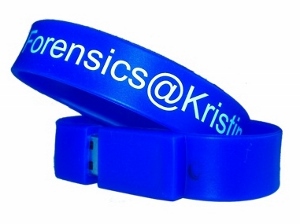

<p><img class=" alignright size-full wp-image-1645" src="http://schoolnewsnz.fastrackdev.com/wp-content/uploads/2015/07/tumblr_ltg57oL5oI1r5nxz2o1_500_300x224.jpg" alt="tumblr ltg57oL5oI1r5nxz2o1 500 300x224" style="margin: 5px; float: right;" width="300" height="224" />More than 300 budding investigators came together from all over New Zealand over the July holidays for Forensics@Kristin, an intensive, student-led programme that challenges participants to solve complex simulated homicide cases.</p>
<p> <!--more--> </p>
<p>Gifted students from primary, intermediate and secondary schools across the country came to embrace the challenge and test their problem solving, research, logic and creative skills at this unique and exciting camp.</p>
<p>Split into three different camp experiences, Forensics@Kristin includes a five-day experience for students in years 5-10, a one-day Junior Edition for years 3-8, and a five-day Senior Scholars&#8217; Edition for selected students in years 11-13.</p>
<p>Joining together as teams of Detectives, the students had three days to work through their cases. They utilised forensic techniques such as fingerprint testing and DNA analysis, and the multitude of resources, skills and intelligence at their disposal to sort the evidence from the red herrings and direct their own lines of inquiry. Their investigations culminated in a simulated court trial where detectives became defence and prosecution lawyers, interviewing key witnesses and arguing their side of the case.</p>
<p>The 15 participants in the Senior Scholars&#8217; camp acted as expert scientific witnesses in the mock court trials. In an extraordinary simulation, the Senior Scholars&#8217; investigation included the discovery and subsequent examination of a burial site in relation to their homicide scenario, and their evidence was critical for the prosecution of many of the Detective teams&#8217; cases.</p>
<p>Over the course of the week, participants met with specialists from the field who explained the real-life application of what they were learning and the realities of forensic investigation. Detective Peter Litherland spoke to the students about the role of a detective in the police force and what it takes to solve a crime. Forensic scientist Laura Parsons from Environment Sciences and Research (ESR) explained her line of work. She provided many tips for the camp&#8217;s Detectives to help them build a strong and compelling prosecution case. Independent forensic scientist Dr Anna Sandiford gave the participants an amazing insight into the world of forensic investigation for the defence, breaking down the myths created by television shows and shining a light on the fascinating and challenging aspects of her profession.</p>
<p>Defence Lawyer Phillip Hamlin gave valuable insights into the trial process.</p>
<p>The complex scenarios were designed by a team of students in the roles of Controllers and Scenario Doctors. These students, mostly in years 9 and 10, had been selected from the very best of previous years&#8217; Detectives. They invested many weeks in preparing the scenarios and related evidence and were kept busy throughout the week, generating information and responding to the many lines of enquiry from the Detective teams.</p>
<p>An additional team of students was responsible for the logistics of running the camp. This included catering for all of the participants and supervising teams, overseeing the science laboratories and general day-to-day business of running the camp. While staff were on hand to help and guide as necessary, it was the students who led the camp, addressed the participants and took responsibility for its ultimate success.</p>
<p>Forensics co-ordinator and GATE teacher Raewyn Casey says it is the student leadership that makes the Kristin Forensics camp so unique.</p>
<p>&#8220;This is the only programme on this scale in New Zealand that is entirely student-led.</p>
<p>&#8220;Although teachers are there to provide guidance, the complete control of the experience is handed over to the students,&#8221; she says.</p>
<p>&#8220;They learn skills of managing small and large groups and have to communicate with a variety of companies and many different adults. The skills they are learning, especially when there is a problem to solve, will remain with them for life.</p>
<p>&#8220;I am always amazed at how capable the students are and the high level of commitment we see from them.&#8221;</p>

EXCLUSIVE: Teachers used to be paid two to three times more than minimum wage workers,…
After an “overwhelming” vote to reject the latest Government offer, secondary school teachers will begin…
Second-language learning should be compulsory, says a new report from a forum bringing together academics,…
A new entitlement aimed to improve access to learning support coordinators for schools with students…
Educators have raised questions about the Ministry of Education’s new secondary school subjects, set to…
Professional learning and development (PLD) for teachers needs to be higher impact for teachers and…
This website uses cookies.